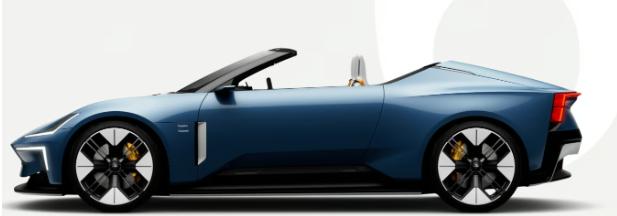Norwegian Finance Minister Trygve Slagswold Werdum recently issued an important statement, claiming that Norway will not follow the EU in imposing tariffs on Chinese electric vehicles. This decision reflects
Norway’s commitment to a collaborative and sustainable approach to the global electric vehicle market. As an early adopter of electric vehicles, Norway has achieved notable success in its transition to sustainable transportation. Since electric vehicles make up a large part of the country's automotive sector, Norway's tariff stance has significant implications for the international new energy vehicle industry.
Norway's commitment to electric vehicles is reflected in its high density of electric vehicles, which is among the highest in the world. Statistics from Norway's official data source show that electric vehicles accounted for 90.4% of cars sold in the country last year, and forecasts indicate that more than 80% of cars sold in 2022 will be electric. In addition, Chinese brands, including Polestar Motors, have made major inroads into the Norwegian market, accounting for more than 12% of imported electric vehicles. This shows the growing influence of Chinese electric car manufacturers in the global market.
The European Commission’s decision to impose tariffs on Chinese electric vehicles has sparked debate about its impact on international cooperation and market dynamics. The move has raised concerns among European carmakers, although the European Commission has expressed concerns about unfair competition and market distortions caused by Chinese government subsidies. The potential impact on manufacturers such as Porsche, Mercedes-Benz and BMW highlights the complex interplay between economic interests and environmental considerations in the new energy vehicle sector.
China's prominence in new energy vehicle exports highlights the industry's international significance. New energy vehicles play a vital role in promoting environmental protection, sustainable energy utilization, and green transportation. The shift to low-carbon travel is in line with global requirements to promote harmonious coexistence between humans and the environment. The imposition of tariffs on Chinese electric vehicles therefore raises relevant questions about the balance between economic competition and ecological sustainability in the international automotive market.
The debate over China's electric vehicle tariffs highlights the need for a nuanced approach that prioritizes ecological balance and international cooperation. While concerns about unfair competition are valid, it is important to recognize the broader environmental benefits brought about by the spread of new energy vehicles. Achieving a harmonious coexistence between economic interests and ecological protection requires a multifaceted perspective that recognizes the interconnectedness of global markets and environmental sustainability.
In summary, Norway’s decision not to impose tariffs on Chinese electric vehicles reflects Norway’s commitment to promoting international cooperation and sustainable transportation. The evolving landscape of new energy vehicles requires a balanced approach that takes into account economic dynamics and environmental requirements. As the international community deals with the complex new energy vehicle market, peaceful development and win-win cooperation are crucial to achieving a sustainable and fair future for the industry. Cooperation rather than unilateral action should be the guiding principle in shaping the development trajectory of the new energy vehicle industry.
Post time: Jun-21-2024



